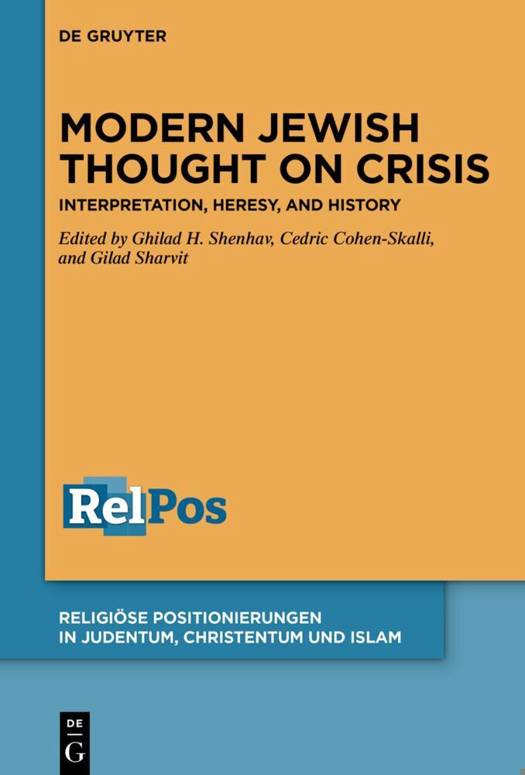
- Afhalen na 1 uur in een winkel met voorraad
- Gratis thuislevering in België vanaf € 30
- Ruim aanbod met 7 miljoen producten
- Afhalen na 1 uur in een winkel met voorraad
- Gratis thuislevering in België vanaf € 30
- Ruim aanbod met 7 miljoen producten
Zoeken
Modern Jewish Thought on Crisis
Interpretation, Heresy, and History
€ 111,45
+ 222 punten
Omschrijving
This volume brings together scholars from a range of disciplines to explore the intersections between crisis, scholarship, and action. The aim of this book is to think about the "moment of crisis," through the concepts, writings, and methodologies awarded to us by Jewish thinkers in modernity. This book offers a broad gallery of accounts on the notion of crisis in Jewish modernity while emphasizing three terms: interpretation, heresy, and messianism. The main thesis of the volume is that the diasporic and exilic experience of the Jewish people turned their philosophers and theologians into "experts in crisis management" who had to find resources within their own religion, culture and traditions in order to react, endure and overcome short- and long-term historical crises. The underlining assumption of this book is therefore that Jewish thought obtains resources for conceptualizing and reacting to the current forms of crisis in the global, European, and Israeli spheres. The volume addresses a large readership in humanities, social and political sciences and religious studies, taking as its assumption that scholars in modern Jewish thought have an extended responsibility to engage in contemporary debates.
Specificaties
Betrokkenen
- Uitgeverij:
Inhoud
- Aantal bladzijden:
- 336
- Taal:
- Engels
- Reeks:
- Reeksnummer:
- nr. 7
Eigenschappen
- Productcode (EAN):
- 9783111342825
- Verschijningsdatum:
- 29/01/2024
- Uitvoering:
- Hardcover
- Formaat:
- Genaaid
- Afmetingen:
- 156 mm x 234 mm
- Gewicht:
- 648 g

Alleen bij Standaard Boekhandel
+ 222 punten op je klantenkaart van Standaard Boekhandel
Beoordelingen
We publiceren alleen reviews die voldoen aan de voorwaarden voor reviews. Bekijk onze voorwaarden voor reviews.










